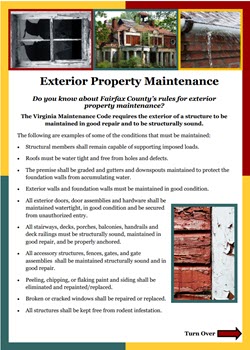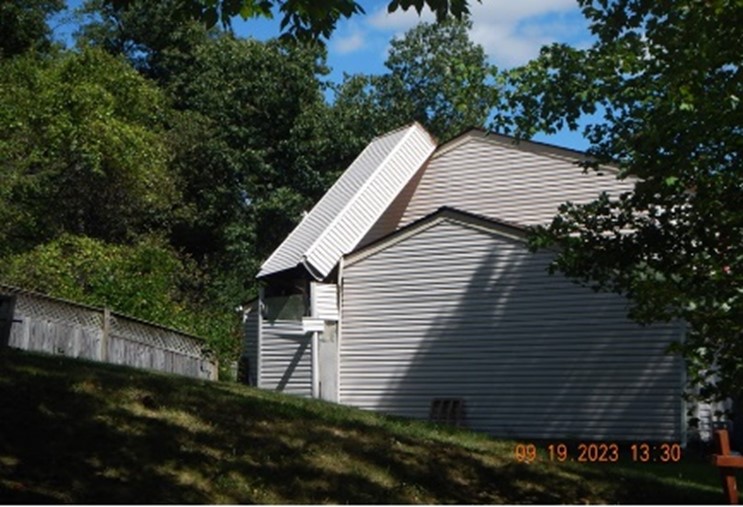
Why does the County regulate property maintenance?
Property maintenance standards exist to promote clean, safe, and attractive neighborhoods. The Department of Code Compliance relies on the Virginia Property Maintenance Code (VPMC) - as the minimum standard regarding safety and general maintenance.
The VPMC applies to almost all existing buildings and structures. Buildings under construction are generally regulated by the Virginia Construction Code, which requires permitting and inspections to ensure safety and compliance with codes for new construction.
What is Property Maintenance?

Maintenance is general upkeep of the structure. This means making sure that both interior and exterior parts of the building are cared for - including all equipment, fixtures, and systems so that the structure is kept safe for occupants. Doors, windows, siding, roofing, plumbing, electrical, heating and ventilation systems, are all features of the property that need to be maintained.
Property maintenance also means keeping the interior of the property safe from overcrowding and free from too many belongings (see: Hoarding) that can cause safety issues – like not being able to exit the building quickly in case of an emergency.

